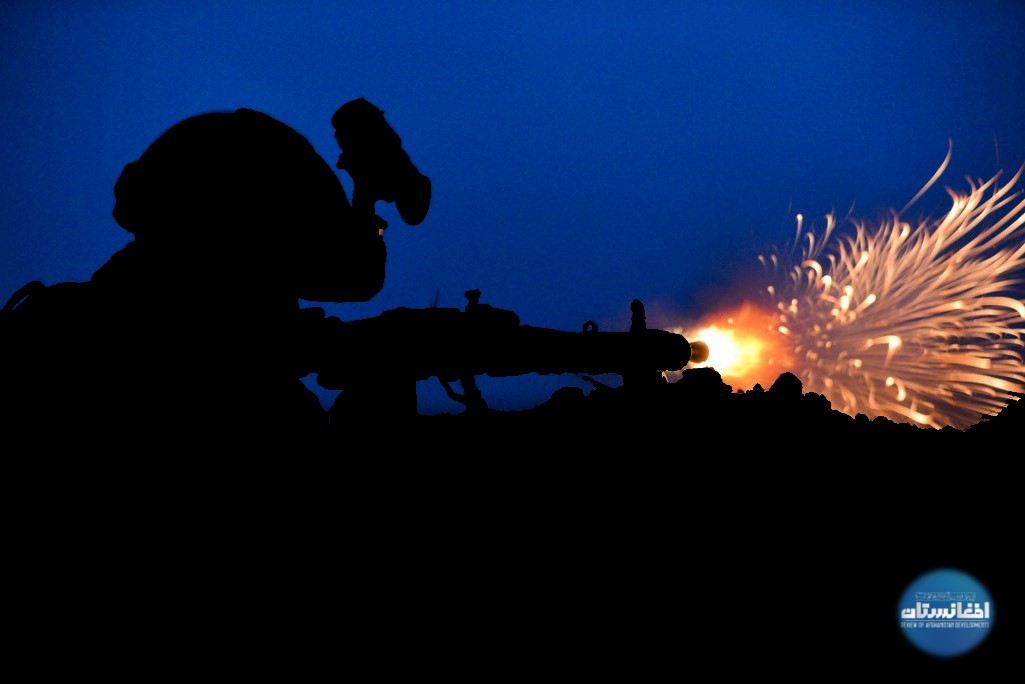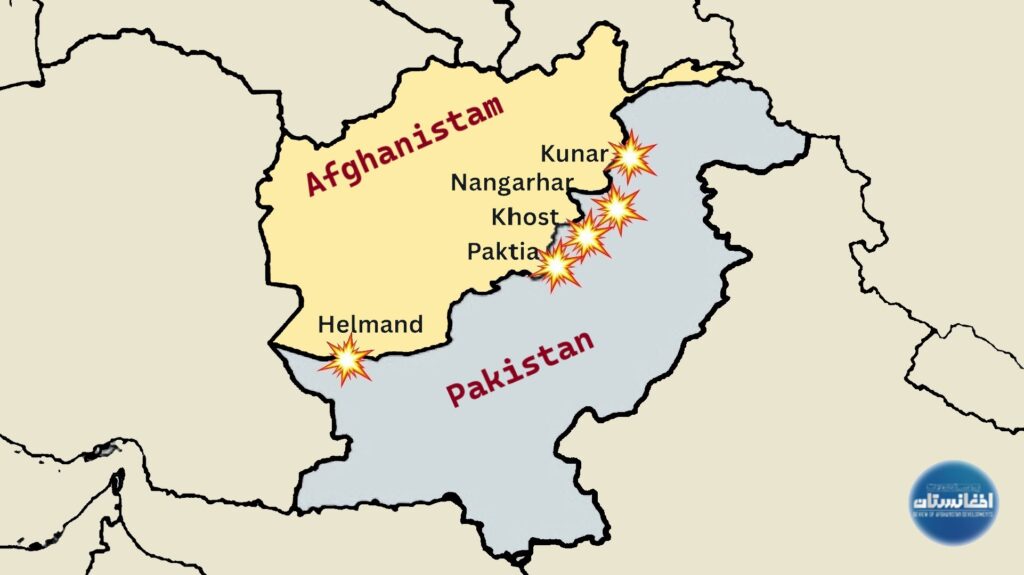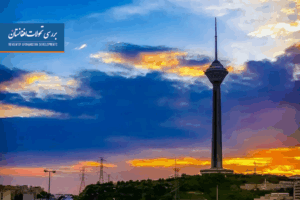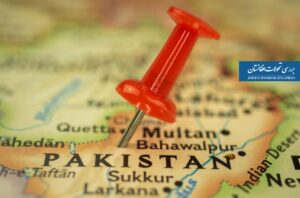Review of Afghanistan developments
On Saturday evening, Taliban military operations began at 7 p.m. in response to Pakistan’s airstrikes on Afghan territory, marking the government’s first large-scale retaliation along the Afghanistan–Pakistan border. These operations were launched across the provinces of Kunar, Nangarhar, Paktia, Paktika, Khost, Helmand, Kandahar, and Zabul, targeting Pakistani border positions and continuing until midnight.
As per information from both parties, combat occurred in a minimum of 10 sites, with each side employing both light and heavy armaments against the other. Given the absence of reliable media presence at the battleground, the details available are solely derived from unofficial accounts, which are challenging to trust because of their emotionally charged content.
The human casualties on both sides in this military operation are a reliable fact, with indications that they have been particularly higher among Pakistani border soldiers. Nevertheless, as the conflict progressed, Pakistani security sources asserted that they had seized multiple border posts from the Taliban government, which at the very least can verifies the capture of one post with available photos.
The Ministry of Defense of the Taliban government declared that the Taliban military operations concluded at midnight. The ministry characterized the operation as successful, stating it was a reaction to the ongoing infringements of Afghan territory by the Pakistani army and airstrikes on Afghan land. Furthermore, it warned that should there be any further violations of Afghanistan’s territory, a firm response will be executed.
In the course of this military operation, the Pakistani Interior Minister conveyed in a message that the conflict instigated by Afghanistan resembles the one initiated by our adversary India, and Afghanistan will face an appropriate response, akin to that of India.

Analysis of the Taliban Military Operations
Afghanistan’s strategies against Pakistan should not solely rely on direct military actions. By countering Pakistan’s strategies, Kabul has the opportunity to bolster and offer logistical assistance to the Tehreek-e-Taliban Pakistan and other opposing factions, including the Baloch. Furthermore, should tensions escalate to critical levels, a contingent of suicide bombers may serve as a valuable asset in a comprehensive conflict between the two countries. The cautionary statement from Naeem Wardak, the deputy foreign minister of the Taliban government, can be interpreted in this context, as he stated: Afghanistan possesses numerous options to react to Pakistan. Consequently, the military operation conducted on Saturday night ought to be regarded as the initial phase of the Taliban government’s response to Pakistan.
Another noteworthy aspect is the unity of Afghans in opposition to Pakistan. Following the commencement of Taliban military operations against Pakistan, a significant number of Afghans who previously opposed the Taliban have, for the first time, expressed their support and endorsement for the Taliban government in this conflict. This development may provide the Taliban government with greater leverage in future responses. Conversely, such solidarity is absent within Pakistan, which has led Pakistani military and political leaders to assert in recent days that the suppression of Afghan Taliban supporters domestically is an integral part of their military strategy.
The future of tensions between Afghanistan and Pakistan
After fifty years, Afghanistan now has a government capable of exerting pressure on Pakistan. This advantage has empowered the Taliban government, in contrast to its predecessors, to respond to interventions from Pakistan. Consequently, it is anticipated that should Pakistan’s aggression persist, the Taliban government will take action. On the other hand, the rising frequency of attacks by the Tehreek-e-Taliban Pakistan has frustrated the authorities in Afghanistan, who are unlikely to relinquish their political and military pressure on the Taliban government easily. Therefore, it appears that, given the current situation, the likelihood of escalating tension between the two nations is increasing.
Related Articles
Pakistan’s airstrike on Kabul: A strategic mistake
China’s Capacity to easeTensions Between Pakistan – Taliban
While some, including officials from Pakistan, perceive the Tehreek-e-Taliban Pakistan as a stalemate in the relations between the two nations, it appears that the matter extends beyond this. One of the most significant challenges is Pakistan’s strategic depth policy concerning Afghanistan. Pakistan, anticipating that Afghanistan would serve as its strategic depth in its rivalry with India, has consistently sought to destabilize Afghan governments and install a regime that would align with its strategic interests; however, this ambition has never come to fruition. As long as Pakistan maintains this policy, the tension between Kabul and Islamabad will persist, as Afghanistan cannot anchor its future to Pakistan.
Territorial and border conflicts between the two nations present an additional challenge for both countries. In contrast to Pakistan, which regards the Durand Line as a formal border, the matter of the Durand Line remains unresolved from the viewpoint of Afghanistan.
Recommendations
The Taliban military operations conducted at Saturday night, along with the ongoing tension between the Taliban government and Pakistan, represents a continuation of the same challenge that has persisted for several decades. The present circumstances and reliance on militarism do not provide a resolution to this challenge; rather, they adversely affect the economies and populations of both nations.
In order to break this prolonged stalemate that has persisted for decades, it is essential for both nations to convene for the first time at a shared table to negotiate a resolution to the core issues, with the assistance of an unbiased mediator, ideally from a regional nation or organization. The Taliban government, which now holds complete sovereignty over Afghanistan after many years, possesses the capacity to engage in discussions regarding fundamental matters with Pakistan by adjusting its policies and achieving both internal and external legitimacy. It appears that Pakistan has also reached the understanding that it must pursue a diplomatic approach.
The present circumstances have resulted in significant and irreversible losses for both nations. Should military actions be escalated and repeated by either party, the region could face yet another crisis. Consequently, it is imperative for the regional countries to collaborate in assisting the two nations in averting further escalation of the crisis and conflicts.
Follow us on social media

















